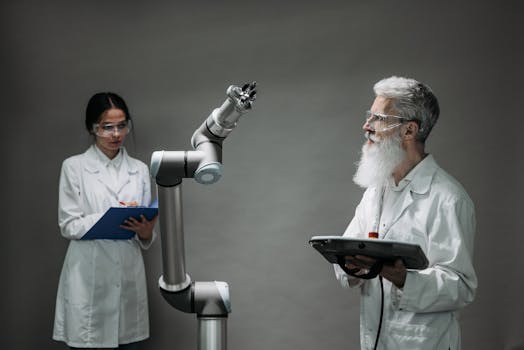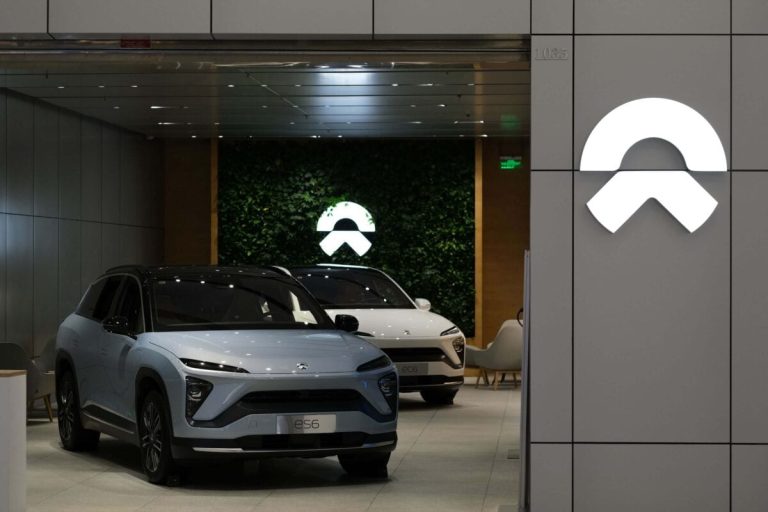
Technological Innovations Shaping 2025: A New Era of Possibilities
Technological innovations are shaping 2025 in profound ways, transforming industries and revolutionizing the way we live and work. As we embark on a new era of technological advancements, it’s essential to explore the emerging technologies that are driving this change. In this article, we’ll delve into the latest technological innovations that are shaping 2025 and beyond.
Artificial Intelligence (AI) and Robotics
Artificial intelligence (AI) and robotics are among the most significant technological innovations of our time. AI refers to the development of computer systems that can perform tasks that would typically require human intelligence, such as learning, problem-solving, and decision-making. Robotics, on the other hand, involves the design, construction, and operation of robots, which are machines that can perform a variety of tasks, from simple to complex.
The integration of AI and robotics is transforming industries such as manufacturing, healthcare, and transportation. For instance, AI-powered robots are being used in manufacturing to improve efficiency and productivity, while in healthcare, AI-powered robots are being used to assist with surgeries and patient care.
Quantum Computing
Quantum computing is a revolutionary technology that uses the principles of quantum mechanics to perform calculations that are exponentially faster and more powerful than classical computers. Quantum computers have the potential to solve complex problems that are currently unsolvable with traditional computers, such as simulating complex systems, optimizing complex processes, and cracking complex codes.
The implications of quantum computing are vast, ranging from breakthroughs in medicine and materials science to enhanced cybersecurity and optimization of complex systems. Companies like Google, Microsoft, and IBM are already investing heavily in quantum computing research and development.
Biotechnology
Biotechnology is the use of biological systems, living organisms, or derivatives thereof, to develop new products, technologies, and therapies. Biotechnology has led to numerous breakthroughs in medicine, agriculture, and environmental science, including the development of genetically modified crops, gene editing technologies, and regenerative medicines.
The future of biotechnology holds great promise, with potential applications in areas such as personalized medicine, synthetic biology, and biofuels. For instance, gene editing technologies like CRISPR have the potential to revolutionize the treatment of genetic diseases, while synthetic biology has the potential to produce novel bio-based products and fuels.
Internet of Things (IoT)
The Internet of Things (IoT) refers to the network of physical devices, vehicles, home appliances, and other items that are embedded with sensors, software, and connectivity, allowing them to collect and exchange data. The IoT has the potential to transform the way we live and work, from smart homes and cities to industrial automation and transportation systems.
The IoT is already being used in various applications, such as smart energy management, industrial automation, and transportation systems. However, the full potential of the IoT has yet to be realized, with potential applications in areas such as healthcare, education, and environmental monitoring.
5G Networks
The fifth generation of wireless technology, known as 5G, is a revolutionary technology that promises to transform the way we communicate and interact with each other. 5G networks have the potential to provide faster data speeds, lower latency, and greater connectivity than previous generations of wireless technology.
The implications of 5G are vast, ranging from enhanced mobile broadband and mission-critical communications to massive machine-type communications and ultra-reliable low-latency communications. 5G has the potential to enable new use cases such as smart cities, smart homes, and immersive technologies like augmented and virtual reality.
Conclusion
In conclusion, technological innovations are shaping 2025 in profound ways, transforming industries and revolutionizing the way we live and work. From AI and robotics to quantum computing and biotechnology, these emerging technologies have the potential to solve complex problems, improve efficiency, and enhance our quality of life. As we embark on a new era of technological advancements, it’s essential to stay informed and adapt to the changing landscape of technology.






